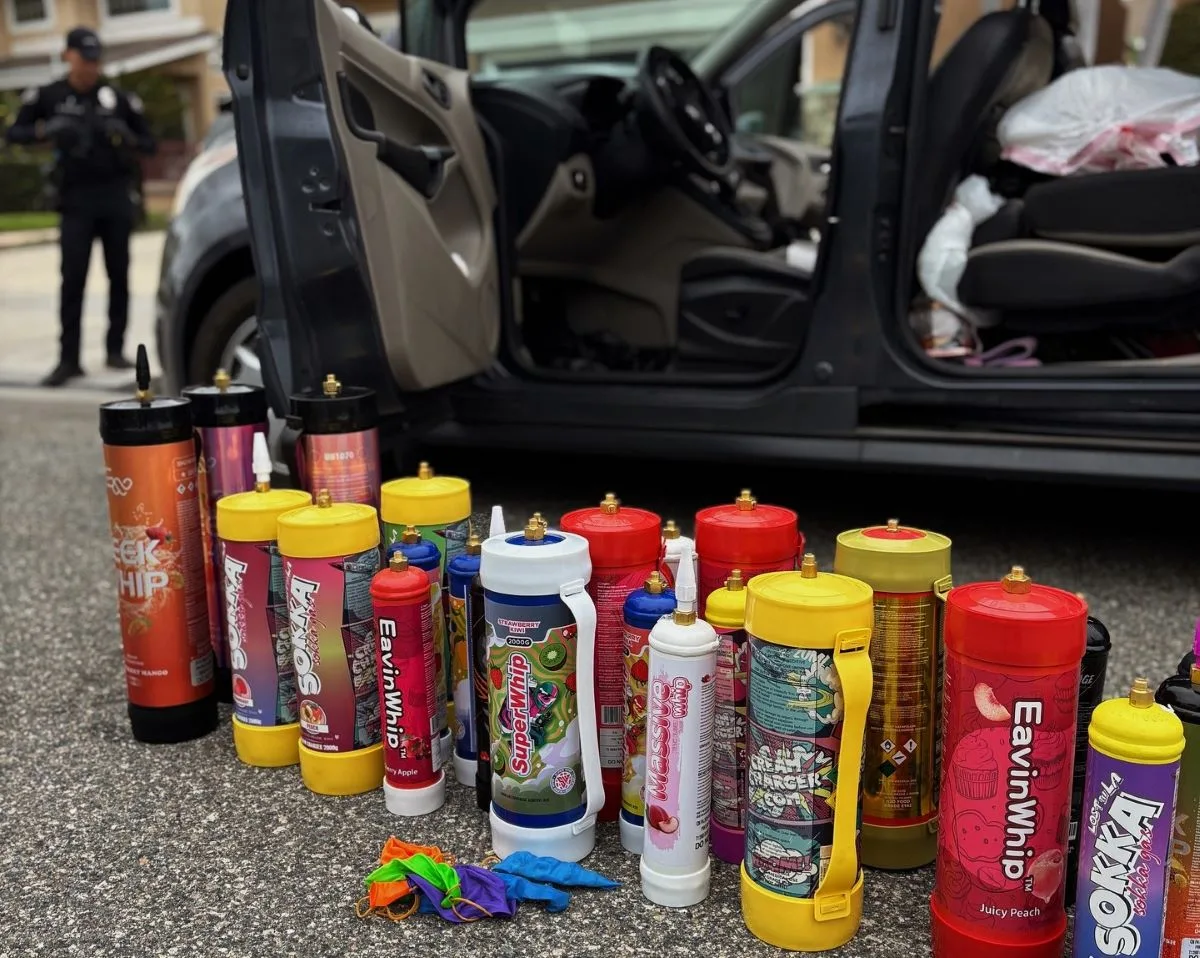A sharp eyed citizen reported seeing a male and female inhaling Nitrous Oxide/NOS (commonly known as “laughing gas”) while driving, according to the Fountain Valley Police Department.
The vehicle was quickly located and stopped by responding police officers.
The male suspect was arrested for possession of NOS, and the female suspect was arrested for possession of NOS and an outstanding warrant.
Safe to say their Saturday morning cruise ended with zero laughs. Moral of the story? Save the balloons for birthday parties.
Here’s a summary of the legal, employment, and insurance consequences for the male and female suspects arrested in Fountain Valley for possession and use of Nitrous Oxide (NOS):
Legal Penalties (California Penal Code §381b)
Possession or recreational use of Nitrous Oxide is a misdemeanor in California. The law applies when someone:
- Possesses NOS with intent to inhale for intoxication.
- Is under the influence of NOS for recreational purposes.
Penalties include:
- Up to 6 months in county jail.
- A fine up to $1,000.
- Possible summary probation instead of jail time.
- Mandatory counseling or drug education for first-time offenders.
If the female suspect had an outstanding warrant, she may face additional charges or jail time depending on the nature of that warrant.
Impact on Employment
A misdemeanor drug-related conviction can affect employment, especially in fields requiring:
- Professional licensing (e.g., healthcare, law enforcement, education).
- Security clearance or background checks.
However, under California’s Fair Chance Act, employers:
- Cannot ask about criminal history until after a conditional job offer.
- Must give written notice and allow a response if they withdraw the offer due to a conviction.
Still, many employers may view drug-related offenses as a red flag, particularly for roles involving safety, trust, or public interaction.
Impact on Insurance
Although NOS possession is not a DUI, it is still a drug-related offense, which can affect auto insurance:
- Premium Increases: Rates may rise by 50–100% or more.
- Loss of Discounts: “Good driver” benefits may be revoked.
- Policy Renewal Issues: Insurers may refuse to renew the policy.
- SR-22 Requirement: If the arrest leads to a license suspension, the driver may need to file an SR-22, which further increases premiums.

